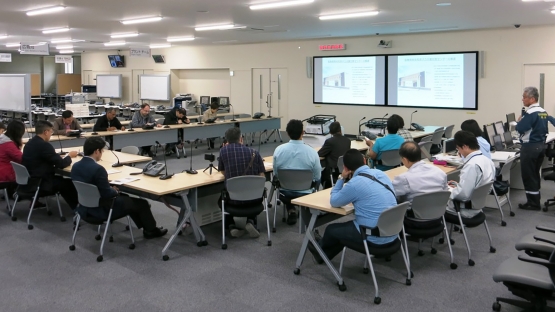During a nuclear emergency, decision-makers must act to protect the public, for example by requesting people to stay indoors with closed doors and windows, or by evacuating a certain area.
Operational Intervention Levels (OILs) are criteria that use monitoring results to judge if such protective actions should be taken. OILs are useful for example in the case of a nuclear power plant emergency to interpret monitoring results and guide decision-makers through the process of determining whether people need to be relocated to avoid exposure.
During a training course held 15-19 May at the IAEA Response and Assistance Network Capacity Building Centre (RANET CBC) in Fukushima Prefecture, Japan, 20 participants from 13 IAEA Member States in the Asia and Pacific Region learned about the development and use of OILs for reactor emergencies. The course enhanced participants’ ability to protect the public in the event of a severe nuclear reactor emergency.
The use of OILs as part of a protection strategy is required by an IAEA safety standard titled Preparedness and Response for a Nuclear or Radiological Emergency (GSR Part 7). The IAEA safety standards are documents that reflect a consensus on what is considered a high level of nuclear and radiation safety.
The course assisted participants in their ?work to define OILs for their countries. It also contributed to the global harmonization of national criteria for implementing protective actions and other response actions, a need recognised by IAEA Member States at the IAEA General Conferences in 2016 and 2015. (See GC(55)/RES/9?and GC(56)/RES/9.)
The training course was based on the recent Operational Intervention Levels for Reactor Emergencies and Methodology for Their Derivation?publication and comprises lectures, exercises and practical sessions to enable participants to apply OILs and to adapt them to national or local conditions.



